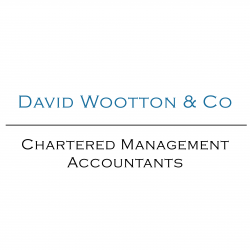Upcoming changes to the special tax rules for Furnished Holiday Lettings are set to shake things up from April 2025.
Announced in the March 2024, these changes essentially remove the tax benefits that holiday lets gain over other types of rental property businesses.
Here’s a rundown of what’s happening and how it might affect you.

What are the changes ahead?
- Finance Costs Deduction: Currently, you can deduct mortgage interest in full as a business expense, but from April 2025, only a 20% tax reduction will apply. This could impact your taxable income. Could it put you into the next tax bracket or affect your eligibility for child benefit?
- Tax Deduction for Furnishings: The initial costs of furnishing can currently be deducted for holiday lets, unlike other rentals – and again this ends in April. But if you’re replacing furnishings, that’s still deductible, as it is with other residential lettings.
- Capital allowances on fixtures. From April, you will no longer be able to claim capital allowances on central heating, air conditioning and alarms.
- Relevant earnings for pensions: Profits from holiday lets currently count toward pension contributions, but this perk will be history from 2025.
- Profit Allocation Flexibility: Previously, joint property owners could allocate the profits to themselves in any proportion. But from April the default is a 50:50 split, as with other types of lettings. Might you need to take action to put all profits in one name only, or to reflect the ownership split?
- Capital Gains Tax Changes: Special CGT reliefs, such as lower rates and rollover relief will no longer apply.
Why the changes?
The government aims to level the playing field by aligning tax treatment across different property lettings. This move is intended to simplify the tax system and encourage longer-term residential letting. It’s thought that the moves will raise £245 million a year by 2028/29.
Not everything is yet clear
Although the changes kick in from April 2025, some specifics are still pending government consultations. Keep an eye out for transitional provisions affecting capital allowances and losses.
Things to consider
If you’re thinking about selling your holiday let, doing so before 6 April could mean you can claim Business Asset Disposal Relief (BADR). You could therefore pay capital gains tax at 10% instead of 24%.
Another option is to stop renting the property as a holiday let before the deadline. You then have three years to complete the sale.
From April, brought-forward holiday let losses will be converted into normal property losses. If you have other property income, you can set the losses against profits from this overall, and not just the holiday let.
Let us help
For a more detailed assessment of how these changes could impact you, including potential adjustments to your taxable income and profits, get in touch. As small business and property accountants in the Lune Valley, we’re here to help you understand and prepare for these upcoming shifts in tax policy.

